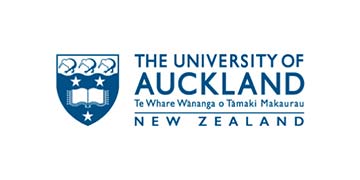University of Auckland: Reducing organ failure in acute critical illness including Covid-19
Health and medicine, Science and technology, Coronavirus, Faculty of Science, Faculty of Medical and Health Sciences
Acute critical illness can result from many different initiating causes such as severe infection, trauma or inflammation states like acute pancreatitis.
But despite the best of medical care, in up to a third of patients an acute critical illness can become fatal because they develop a progressive failure of vital organs (e.g. heart and lungs). This pattern of “multiple organ failure” is often similar, regardless of what initially made the patient sick and can occur in organs unrelated to the original illness.
Professor Anthony Phillips from the University of Auckland will give his inaugural lecture on his research which has a major focus on trying to understand the basic science of acute critical illness, investigating therapeutic drugs, and developing medical devices.
Professor Phillips spends his time between the Department of Surgery in the Faculty of Medical Health Sciences and the School of Biological Sciences in the Faculty of Science. He and his co-investigators received more than $2.6 million in funding in the last year for a range of research projects, including one for developing treatments for patients with Covid-19 on long term ventilation.
“We are evaluating a new drug for treating the sickest Covid-19 patients who are on ventilators because, while the treatment with mechanical ventilation does improve blood oxygenation, it can also damage lungs in the long term,” he says.
“We want to find a way to prevent this happening so people can make a more rapid recovery. To do this we will be undertaking in-vitro and in-vivo drug evaluations to better understand how to modulate the mechanism underlying ventilator induced lung injury.”
Professor Phillips also has a Health Research Council (HRC) grant looking at improving nutrition delivery for very sick patients who need careful nutritional and fluid management. This research will test a new method for helping to provide nutrition to very sick patients in a way that is safe and more efficient for medical staff.
In another project with co-investigator Professor John Windsor from the Faculty of Medical Health Sciences, he has received HRC funding to develop a new therapy for reducing the severity of organ failure in diseases like acute pancreatitis.
Professor Phillips works with a wide range of other colleagues at Auckland, including Associate Professor Tony Hickey. They opened a joint research laboratory at the University which has a deliberate philosophy to keep its research scope broad and therefore welcomes researchers with diverse research interests.
“A theme across my own work is ‘translational surgical research’ which has to date included major research projects on acute pancreatitis, critical illness and lymph physiology.”
This lecture will be held on Thursday 18 March at 6.30pm. It is free and all are welcome.

